
Ra'anana: The Green Jewel of Israel
Ra'anana is a charming city in central Israel, known for its lush parks, vibrant community life, and rich cultural heritage. Nestled in the heart of the Sharon Plain, Ra'anana offers a perfect blend of modern amenities and serene natural beauty, making it an ideal destination for tourists seeking a peaceful yet engaging experience. One of the city's highlights is Park Ra'anana, a sprawling green space that features beautiful gardens, a large lake, and numerous walking and biking trails. The park is a hub of activity and a great spot for picnics, family outings, or a relaxing afternoon stroll. Don't miss the opportunity to visit the lake, where you can rent paddle boats and enjoy the scenic views. Ra'anana also boasts a rich cultural scene, with its performing arts center hosting a variety of concerts, plays, and dance performances throughout the year. The city's diverse population ensures a wide range of culinary delights, from traditional Middle Eastern fare to international cuisine. The bustling Ahuza Street is the place to go for shopping, dining, and soaking in the local atmosphere. For those interested in history, Ra'anana offers several historical sites and museums that provide insight into the region's past. The Founders' Museum, for instance, chronicles the city's establishment and growth, while various landmarks scattered around the city tell the story of its development from a small agricultural settlement to a thriving urban center.
Local tips in Ra'anana
- Visit Park Ra'anana early in the morning or late afternoon to avoid the midday heat and enjoy a more peaceful experience.
- Check the schedule at the Ra'anana Performing Arts Center for any live shows or cultural events during your stay.
- Explore Ahuza Street for a mix of shopping, dining, and local entertainment options.
- Try the local cafes and restaurants for a taste of authentic Middle Eastern cuisine.
- Rent a bike to explore the city's numerous cycling paths and enjoy the scenic views at your own pace.
Ra'anana: The Green Jewel of Israel
Ra'anana is a charming city in central Israel, known for its lush parks, vibrant community life, and rich cultural heritage. Nestled in the heart of the Sharon Plain, Ra'anana offers a perfect blend of modern amenities and serene natural beauty, making it an ideal destination for tourists seeking a peaceful yet engaging experience. One of the city's highlights is Park Ra'anana, a sprawling green space that features beautiful gardens, a large lake, and numerous walking and biking trails. The park is a hub of activity and a great spot for picnics, family outings, or a relaxing afternoon stroll. Don't miss the opportunity to visit the lake, where you can rent paddle boats and enjoy the scenic views. Ra'anana also boasts a rich cultural scene, with its performing arts center hosting a variety of concerts, plays, and dance performances throughout the year. The city's diverse population ensures a wide range of culinary delights, from traditional Middle Eastern fare to international cuisine. The bustling Ahuza Street is the place to go for shopping, dining, and soaking in the local atmosphere. For those interested in history, Ra'anana offers several historical sites and museums that provide insight into the region's past. The Founders' Museum, for instance, chronicles the city's establishment and growth, while various landmarks scattered around the city tell the story of its development from a small agricultural settlement to a thriving urban center.
When is the best time to go to Ra'anana?
Iconic landmarks you can’t miss
Ra'anana Park
Explore Ra'anana Park, a lush urban oasis in Israel offering scenic views, recreational activities, and a perfect escape for tourists and locals alike.
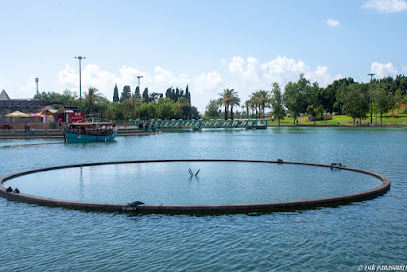
Renanim
Experience the lively shopping and dining scene at Renanim Shopping Mall in Ra'anana, where local culture meets modern retail.
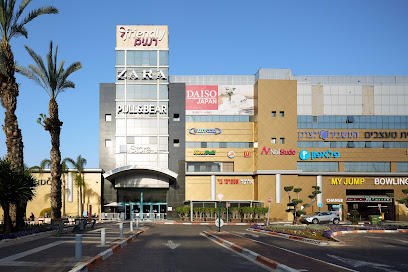
Apollonia National Park
Explore the stunning coastal views, ancient ruins, and diverse wildlife at Apollonia National Park, a perfect destination for hiking and history lovers.
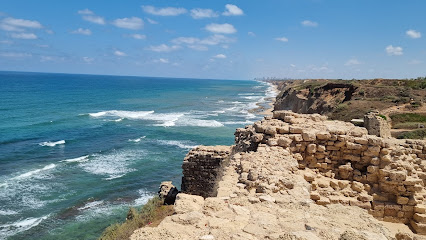
Raanana Park Amphitheater
Discover the vibrant Raanana Park Amphitheater, a cultural gem in Israel's scenic Ra'anana Park, where nature meets exceptional live performances.
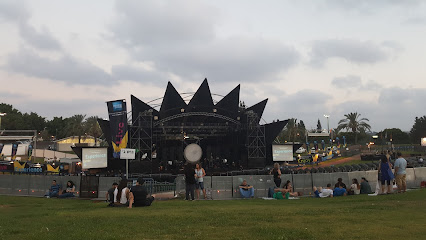
Makom Balev
Experience the charm of Ra'anana at Makom Balev, a delightful coffee shop and restaurant perfect for food lovers and event seekers.
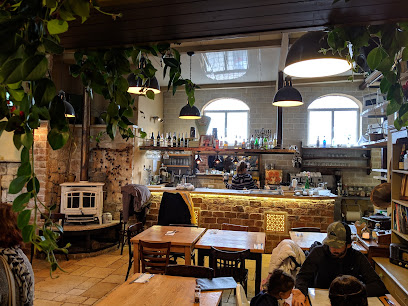
Sky Jump
Discover the ultimate family fun at Sky Jump, Ra'anana's leading children's amusement center featuring thrilling attractions and active play areas.
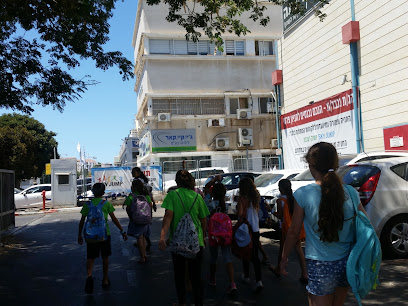
Bait - Urban event space
Discover Bait, Ra'anana's premier urban event space for conferences, weddings, and vibrant social gatherings amidst modern design and a lively atmosphere.
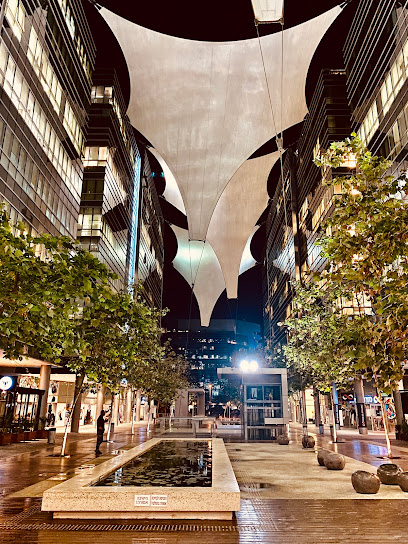
Hummus Tanami
Experience the authentic taste of Israel at Hummus Tanami, renowned for its creamy hummus and traditional Middle Eastern dishes in Ra'anana.
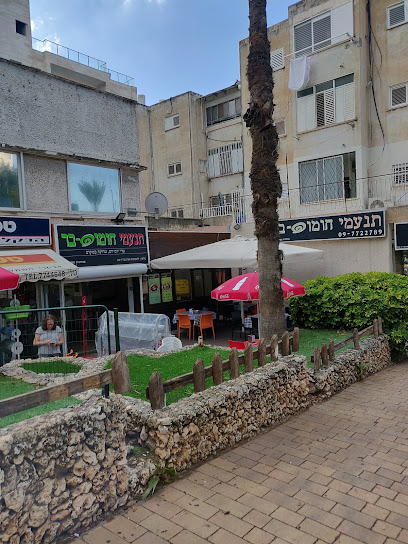
Laser Street
Dive into the exhilarating world of laser tag at Laser Street, Ra'anana's premier destination for fun and competitive gameplay.
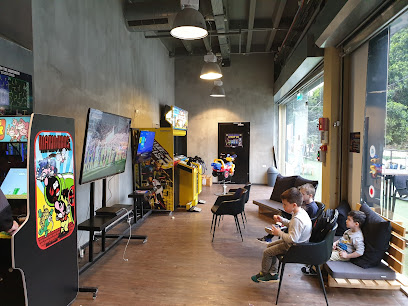
Sportek
Discover Sportek in Ra'anana, a vibrant sports complex offering basketball, soccer, beach volleyball, and table tennis facilities for all ages and skill levels.
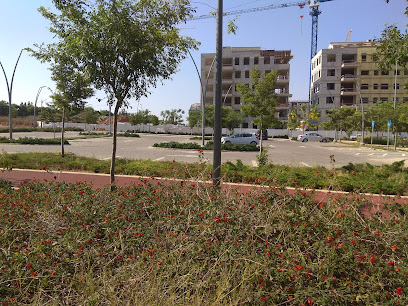
victory
Explore local flavors and essentials at Victory Supermarket in Ra'anana, where every aisle leads to a taste of Israel.
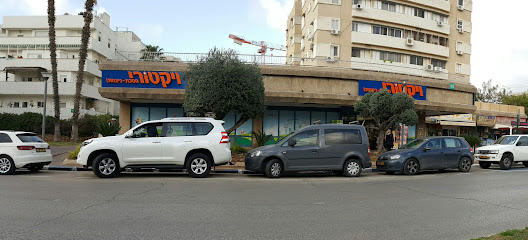
Meatland
Explore Meatland in Ra'anana, a culinary supermarket filled with fresh meats, gourmet treats, and local flavors for food lovers.
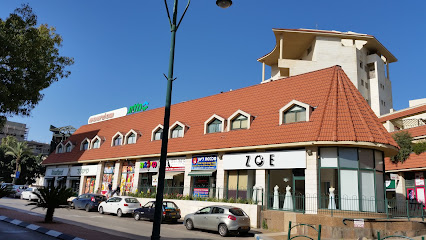
Bowling Renanim
Experience the joy of bowling at Bowling Renanim in Ra'anana, where fun meets family-friendly entertainment in a vibrant setting.
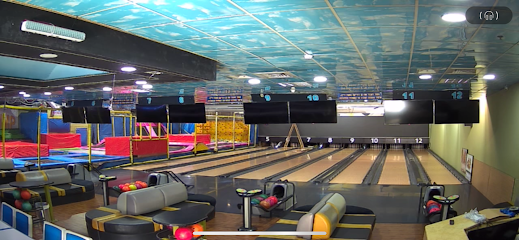
Park Ra’anana
Explore Park Ra'anana, a beautiful urban oasis in Ra'anana, Israel, where nature meets culture and relaxation awaits every visitor.
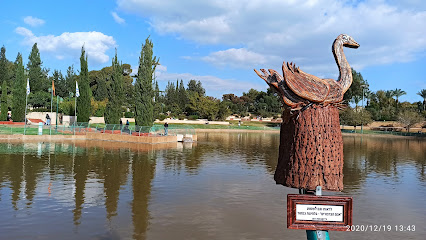
SAP Israel
Explore SAP Israel in Ra'anana, where innovation meets technology in a vibrant corporate atmosphere.
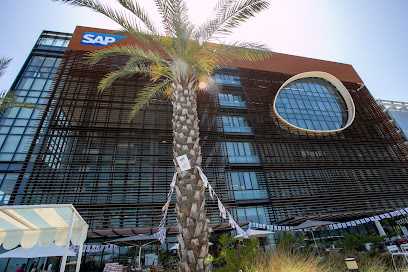
Unmissable attractions to see
Caesarea National Park
Discover the captivating blend of history and nature at Caesarea National Park, where ancient ruins meet stunning coastal landscapes.
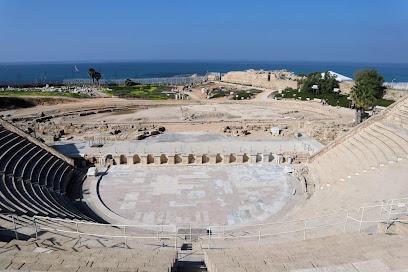
Yarkon Park
Discover the serene beauty and vibrant atmosphere of Yarkon Park, Tel Aviv's stunning urban oasis perfect for relaxation and outdoor adventures.
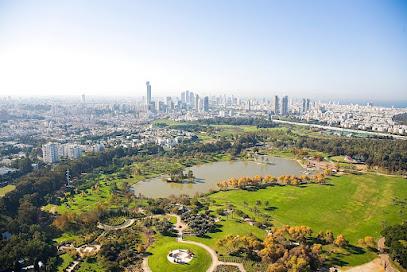
Jaffa Flea Market
Discover the vibrant atmosphere of Jaffa Flea Market, a bustling hub in Tel Aviv-Yafo filled with antiques, crafts, and delicious local cuisine.
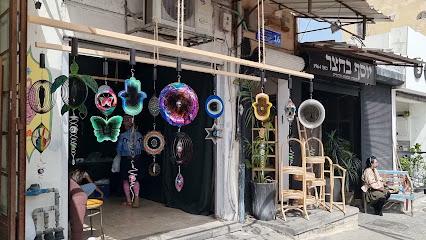
Ra'anana Park
Discover Ra'anana Park: a serene urban oasis featuring lush greenery, playgrounds, and scenic walking paths for a perfect day outdoors.
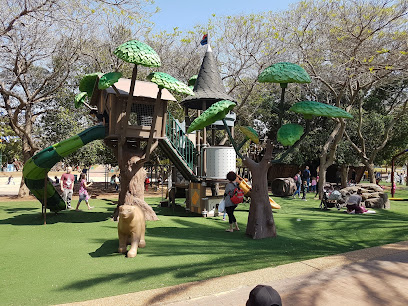
The Clock Tower
Discover the enchanting Clock Tower in Tel Aviv-Yafo, a historical landmark reflecting the city's rich heritage and vibrant present.
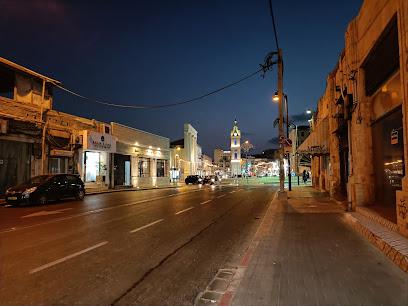
Tel Aviv Museum of Art
Explore the rich collection of modern and contemporary art at the Tel Aviv Museum of Art, a cultural gem in the heart of Israel.
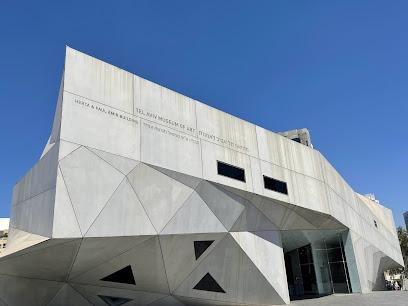
Park HaTachana
Explore the historical charm of Park HaTachana in Tel Aviv-Yafo, where history meets modern culture in a vibrant cultural hub.
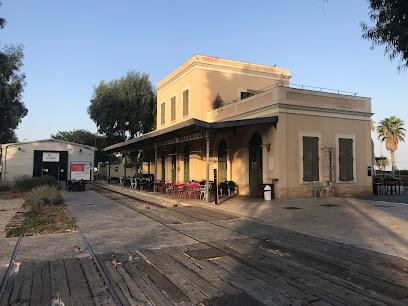
Levinski Market
Discover the vibrant Levinski Market in Tel Aviv, a culinary paradise filled with fresh produce, gourmet foods, and rich cultural experiences.
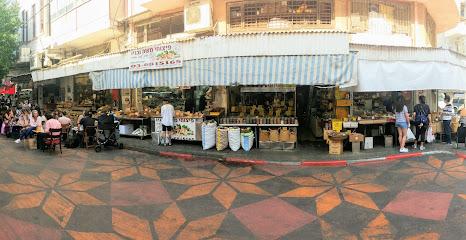
Ramat Hanadiv
Discover the enchanting Ramat Hanadiv, a serene park in Zikhron Ya'akov filled with beautiful gardens, historical significance, and outdoor adventures.
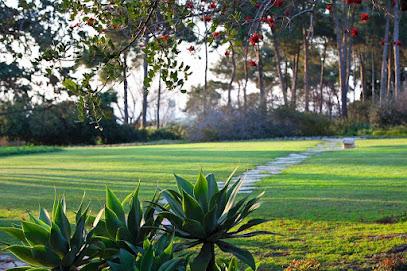
HaBima Square
Experience the vibrant blend of nature and culture at HaBima Square, the heart of Tel Aviv-Yafo's artistic scene.
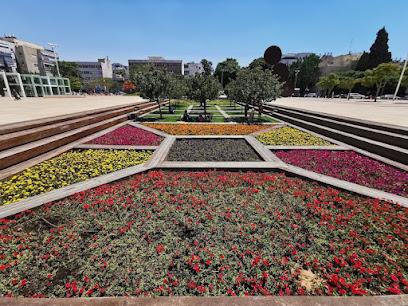
Tel Aviv Port
Discover the vibrant atmosphere of Tel Aviv Port with its scenic views, diverse dining options, and lively cultural experiences by the Mediterranean Sea.
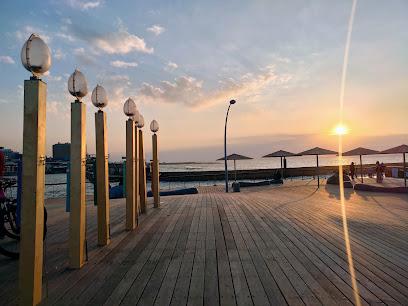
ANU Museum of the Jewish People
Discover the rich history and culture of the Jewish people at the ANU Museum in Tel Aviv-Yafo, an essential destination for culture and heritage enthusiasts.
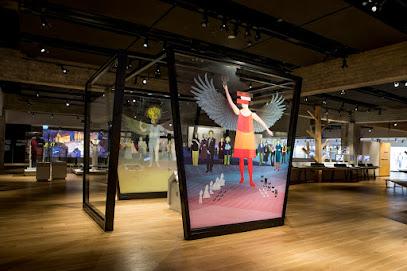
Apollonia National Park
Experience the breathtaking landscapes and rich history of Apollonia National Park, a serene escape along the Mediterranean coast in Herzliya, Israel.
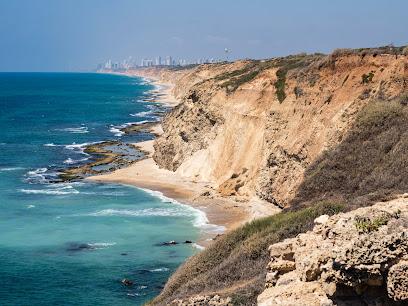
Midron Yaffo Park
Discover the natural beauty and cultural vibrancy of Midron Yaffo Park, a hidden gem in Tel Aviv-Yafo perfect for relaxation and exploration.
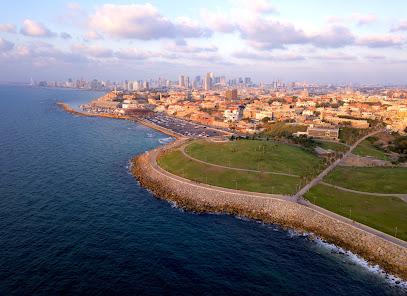
Eretz Israel Museum
Discover the heart of Israel's history and culture at Eretz Israel Museum, where ancient artifacts meet modern insights in Tel Aviv.
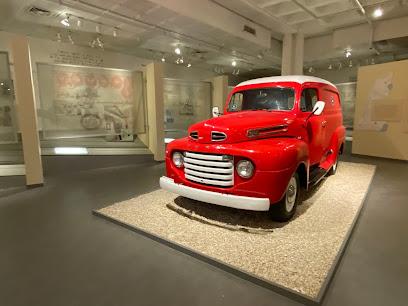
Essential places to dine
Makom Balev
Discover Makom Balev in Ra'anana – where culinary creativity meets warm hospitality in a vibrant setting.
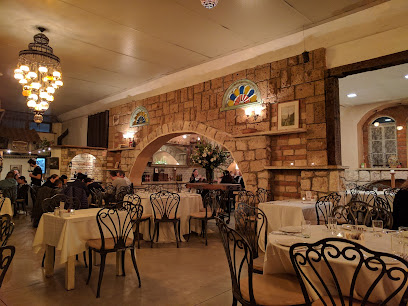
Buckaroo
Experience authentic Israeli barbecue at Buckaroo BBQ in Ra'anana – where every meal is a flavorful adventure!
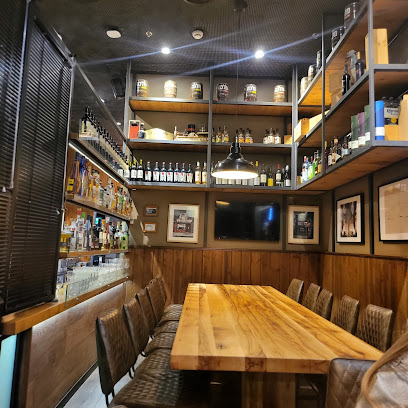
Pazzo - Pizza Party | פיצה פאצו
Discover the vibrant flavors of Pazzo in Ra'anana – where pizza meets nightlife in a lively atmosphere.
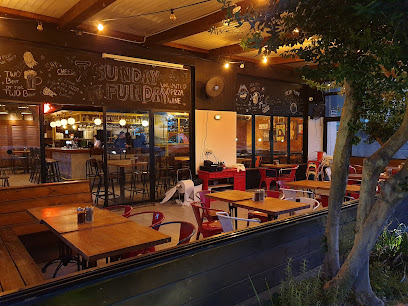
BBB
Discover BBB: A burger paradise in Ra'anana offering gourmet flavors and fast service amidst the vibrant mall atmosphere.
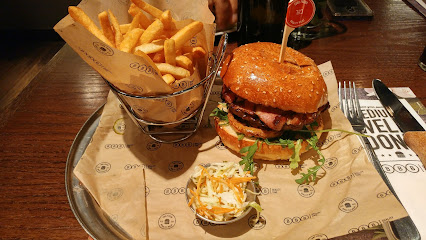
Brasserie Kazan
Discover the culinary delights at Brasserie Kazan in Ra'anana - where local flavors meet international flair.
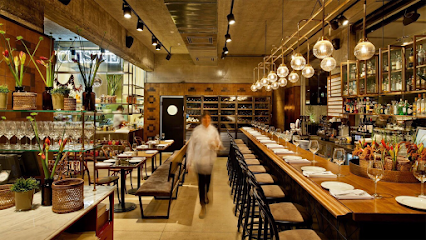
Salta
Experience authentic kosher cuisine at Salta in Ra'anana - where tradition meets flavor in every dish.
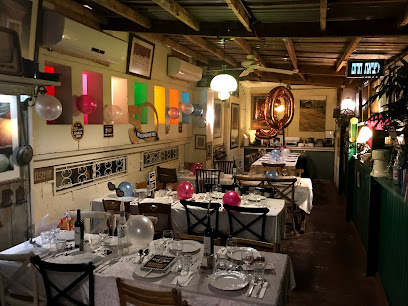
Jem's Beer Factory
Discover Jem's Beer Factory: A Kosher Bar Offering Craft Beers and Delicious Cuisine in Ra'anana.
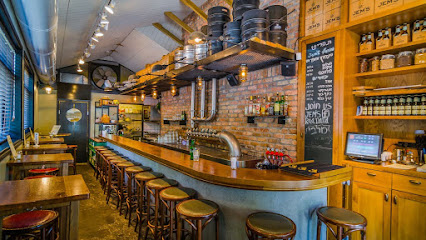
Oldies Pancake Bar - אולדיס פנקייק בר רעננה
Experience the best pancakes and breakfast dishes at Oldies Pancake Bar in Ra'anana - a must-visit for food lovers!
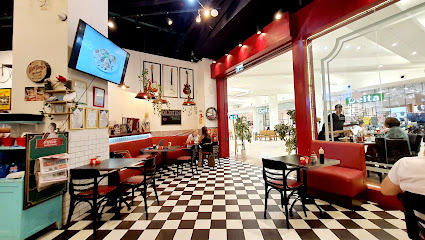
Murphy's Bar, Ra'anana מרפיס
Experience the vibrant flavors of kosher cuisine at Murphy's Bar in Ra'anana - where good food meets great company.
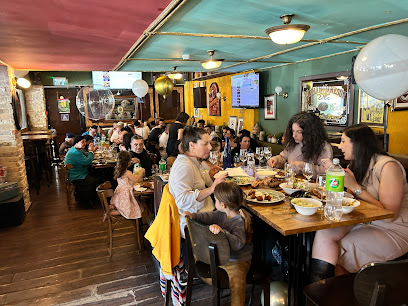
מסעדה | קייטרינג | Pastaria Pasta Bar
Discover the essence of Italy at Pastaria Pasta Bar in Ra'anana – where authentic flavors meet modern culinary artistry.
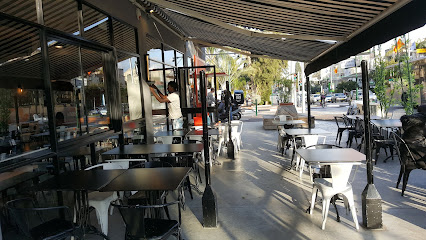
Joya
Savor authentic Italian flavors at Joya in Ra'anana - where every meal is a celebration of Italy's culinary heritage.
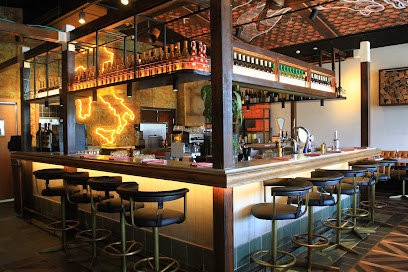
Kipa Aduma
Indulge in flavorful kosher fast food at Kipa Aduma in Ra'anana—where taste meets tradition in every dish.
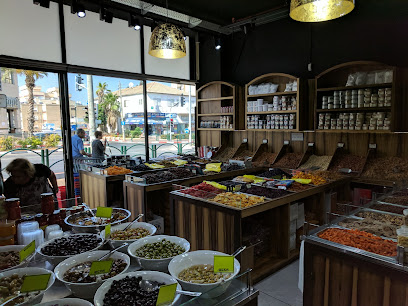
Bleecker Bakery
Experience the delightful flavors at Bleecker Bakery in Ra'anana – where every bite is a taste of homemade goodness.
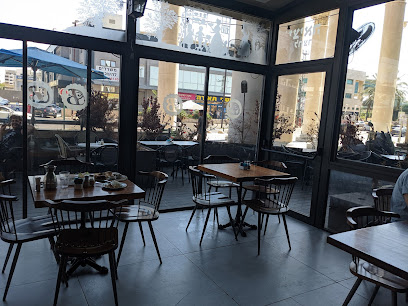
עזיזה
Experience the best fast food at Aziza in Ra'anana - delicious dishes crafted with fresh ingredients in a vibrant setting.
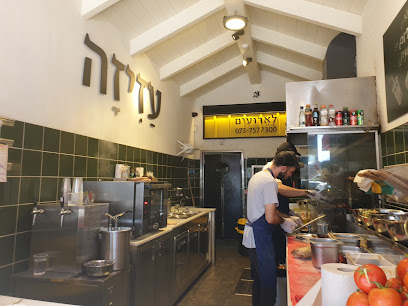
Bahadunas Hummus
Experience authentic Israeli cuisine at Bahadunas Hummus in Ra'anana – where every dish tells a story of flavor and tradition.
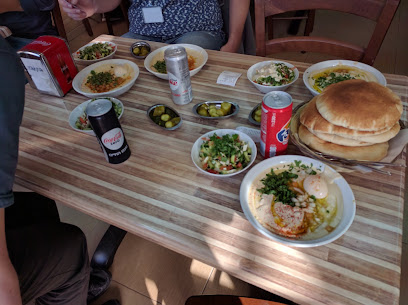
Markets, malls and hidden boutiques
Renanim
Explore Renanim, a vibrant shopping mall in Ra'anana offering a diverse range of stores, dining options, and a lively atmosphere for tourists.
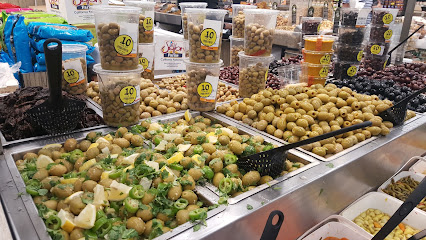
Buy the Way
Experience the taste of Ra'anana at Buy the Way, a cozy coffee shop and brunch spot offering delicious meals and a warm ambiance.
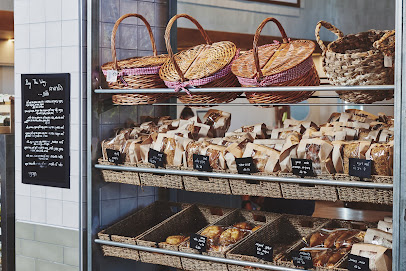
Tiv Taam
Explore gourmet delights at Tiv Taam in Ra'anana, Israel – where quality meets variety in a premier supermarket experience.
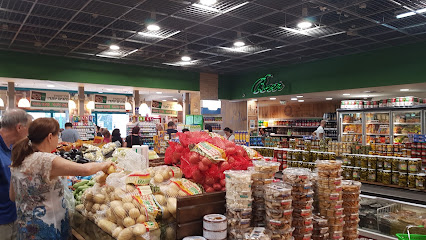
Rami Levy
Discover Rami Levy in Ra'anana: your go-to supermarket for fresh produce, gourmet treats, and local flavors at competitive prices.
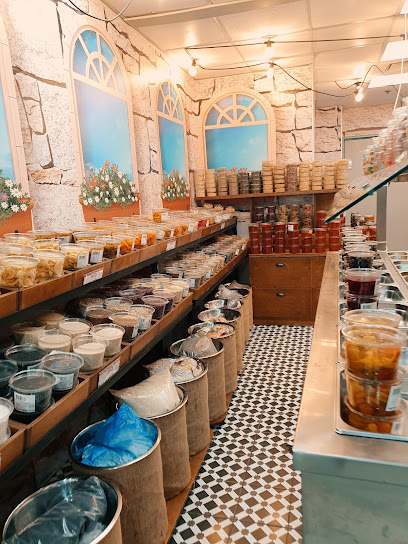
Mall Park
Explore Mall Park - Ra'anana's premier shopping destination with diverse shops, eateries, and a vibrant atmosphere perfect for tourists.
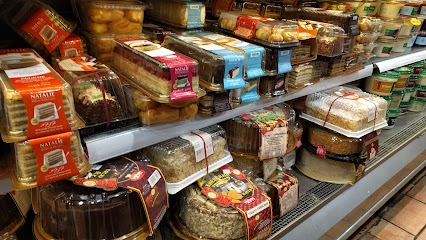
Aqvarel
Discover Aqvarel in Ra'anana, your ultimate destination for art supplies, crafting materials, and creative inspiration for all skill levels.
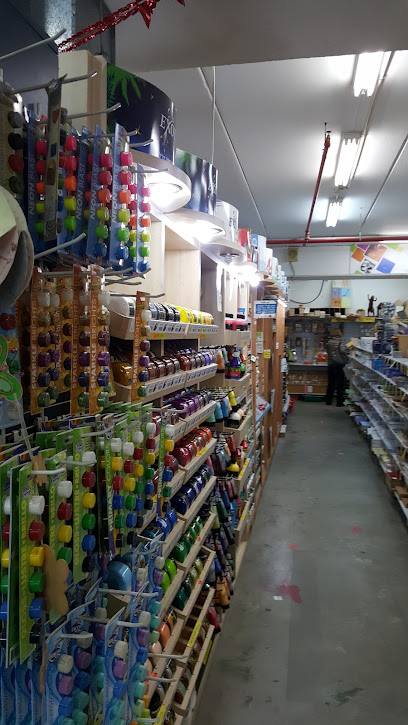
שופרסל דיל
Discover the rich culinary landscape of Israel at Shufersal Deal, a supermarket offering a diverse selection of local and international products.
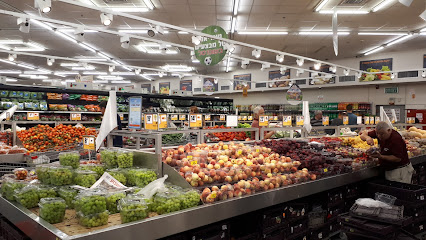
מקס סטוק
Explore the vibrant world of home goods at Max Stock in Ra'anana, where quality meets affordability in a delightful shopping experience.
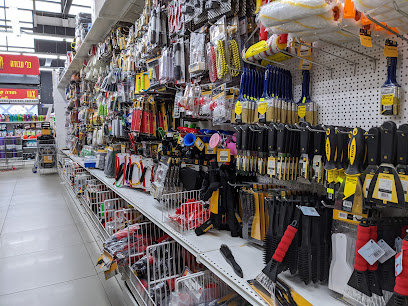
victory
Experience Israel's vibrant flavors at Victory Supermarket in Ra'anana, your go-to spot for local products and international delights.
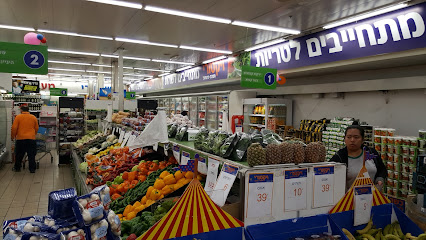
אייסטור - iStore - חווית Apple בישראל - סניף רעננה
Explore the latest in Apple technology at iStore Ra'anana, your premier destination for all things tech in Israel.
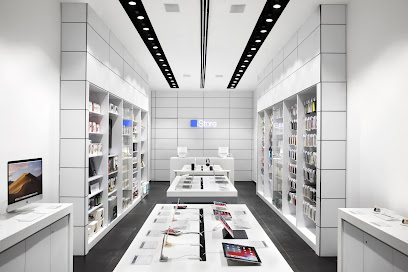
Carrefour Hyper Ra'anana
Discover the vibrant Carrefour Hyper Ra'anana, your go-to discount supermarket for local groceries and fresh produce in the heart of Ra'anana, Israel.
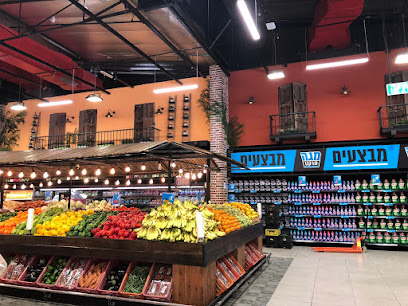
Caya Specialty Coffee
Discover the rich flavors of artisanal coffee at Caya Specialty Coffee, the local gem in Ra'anana, perfect for a cozy break during your travels.
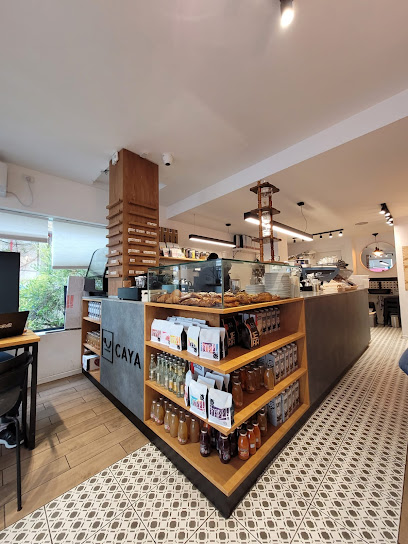
Travel outlet center Kedar, Ra'anana
Discover top outdoor clothing and equipment at Kedar Travel Outlet Center in Ra'anana, your gateway to thrilling adventures in Israel.
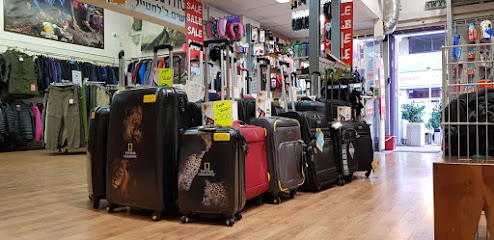
Wiz Kids
Discover a world of literary treasures at Wiz Kids, a delightful bookstore in Ra'anana, with a vast selection for every book lover.
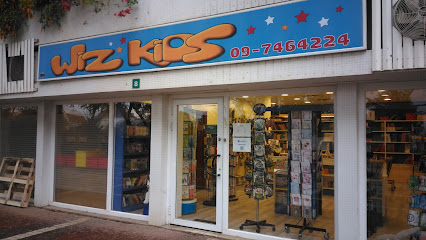
חנות און ליין ליודאיקה ואומנות יהודית
Discover Judaica and Jewish art in Ra'anana's Kenyon Raananim Mall, a treasure trove of cultural heritage and artistic expression.
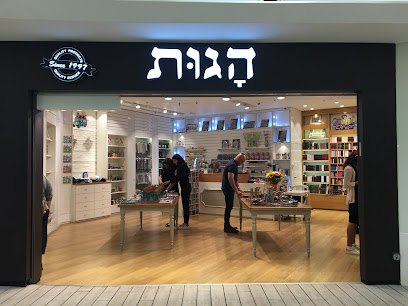
Essential bars & hidden hideouts
Pazzo - Pizza Party | פיצה פאצו
Experience the perfect blend of delicious pizza and vibrant cocktails at Pazzo, a lively bar and restaurant in Ra'anana.
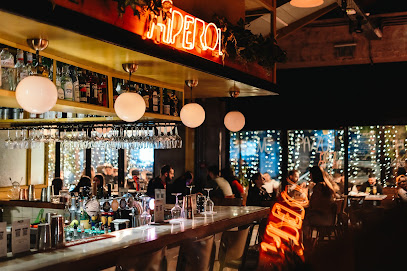
Jem's Beer Factory
Discover the best craft beers and kosher dining at Jem's Beer Factory in Ra'anana, a vibrant hotspot for beer lovers and food enthusiasts.
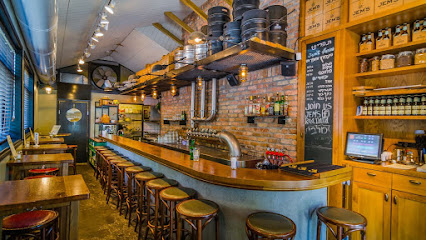
Murphy's Bar, Ra'anana מרפיס
Discover the lively atmosphere and delicious kosher grill options at Murphy's Bar in Ra'anana, perfect for tourists looking to unwind.
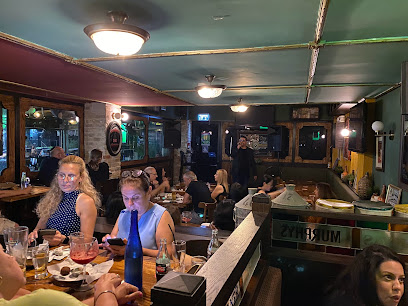
רופטופ סקיי בר רעננה | Rooftop Sky Bar
Discover breathtaking views and a vibrant atmosphere at Rooftop Sky Bar in Ra'anana, a premier destination for cocktails and relaxation.
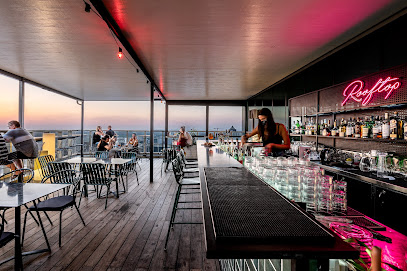
BFF
Discover the flavors of Israel at BFF, a grill restaurant in Ra'anana offering savory dishes and a warm atmosphere for every food lover.
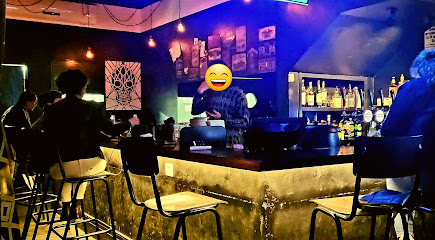
Tusha
Experience the vibrant nightlife and delicious cuisine at Tusha, Ra'anana's premier bar and restaurant destination for food lovers and socializers.
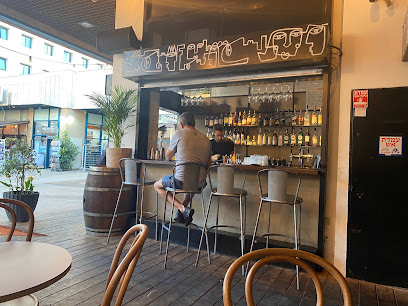
Poke Bar
Experience the vibrant flavors of Hawaii at Poke Bar in Ra'anana, where fresh ingredients and customizable poke bowls await every food lover.
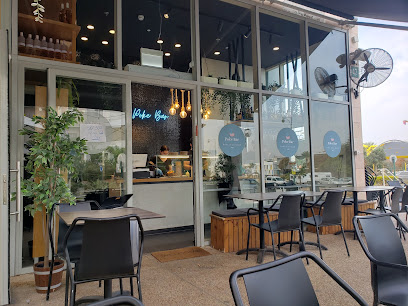
בית הבירה
Discover the lively spirit of בית הבירה in Ra'anana, a bar that blends local culture with a vibrant nightlife atmosphere.
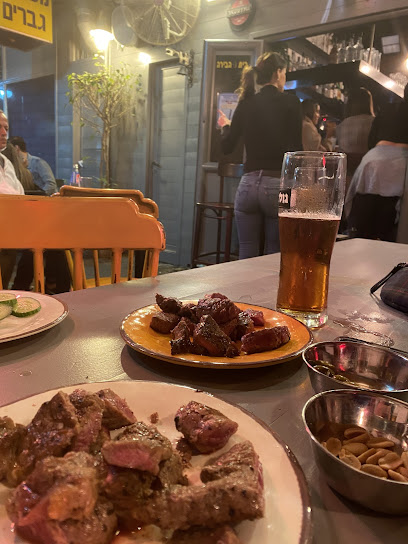
רמבר
Discover the lively nightlife of Ra'anana at רמבר, a vibrant bar offering a diverse selection of drinks and a welcoming atmosphere for all.
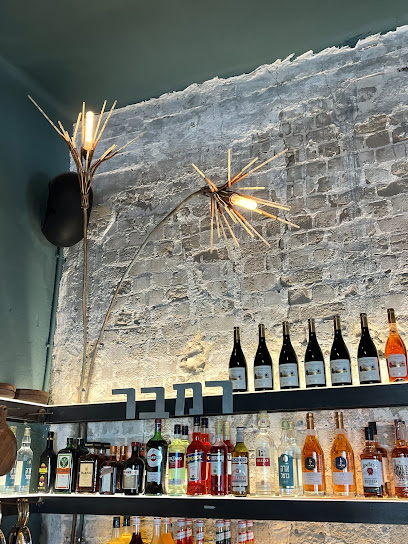
La Mano Bar
Experience vibrant nightlife at La Mano Bar in Ra'anana, where cocktails and camaraderie come together in a stylish setting.
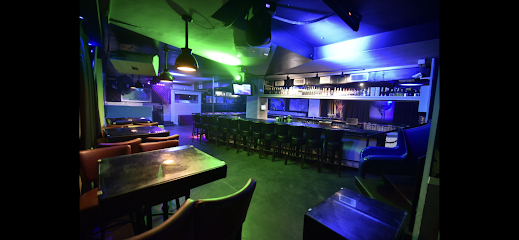
Element רעננה
Discover the vibrant flavors of Mediterranean tapas and fine wines at Element רעננה, where culinary magic meets social dining in Ra'anana.
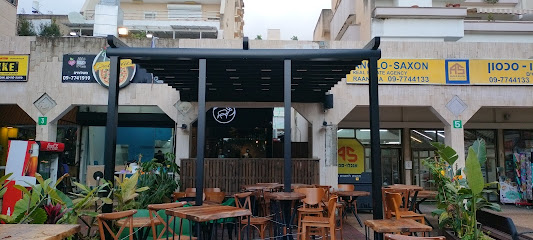
בר השובך
Experience the lively spirit of Bar HaShovach, a top bar in Ra'anana, where great drinks and a vibrant atmosphere await every visitor.
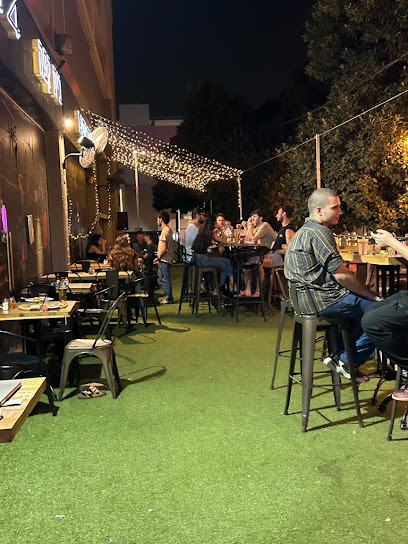
חושבה
Discover the vibrant nightlife of Ra'anana at Choshva, a lively bar offering a unique blend of quality drinks and local charm.
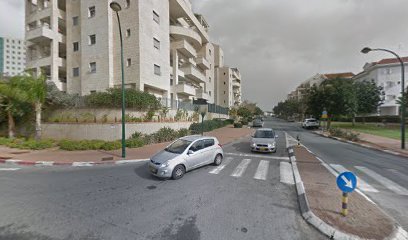
הא ודא HaVeDa - אהבה ליין ואלכוהול
Discover the best of Israeli wines at HaVeDa, a charming wine store and bar in Ra'anana, perfect for tastings and learning.
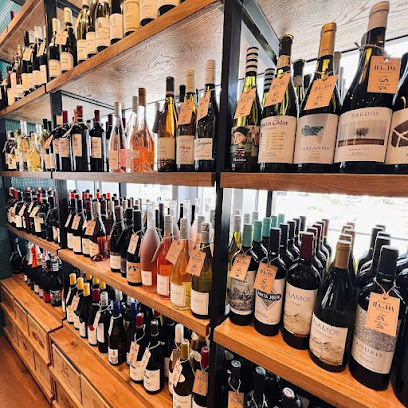
Lava Bar
Discover the vibrant nightlife at Lava Bar in Ra'anana, where unique cocktails and a lively atmosphere await every visitor.
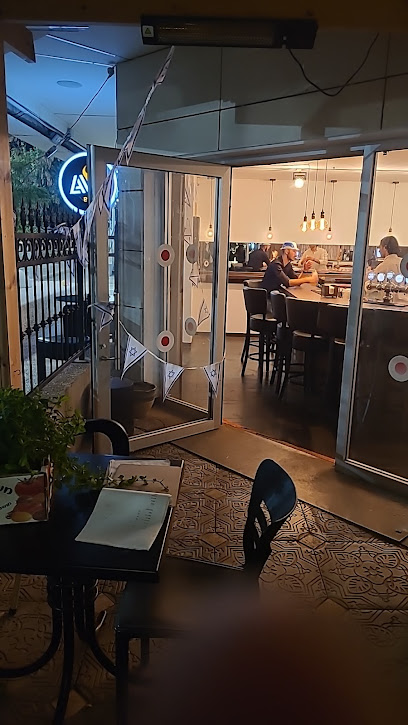
Local Phrases
-
- Helloשָׁלוֹם
[Shalom] - Goodbyeלְהִתְרָאוֹת
[Lehitraot] - Yesכֵּן
[Ken] - Noלֹא
[Lo] - Please/You're welcomeבבקשה
[Bevakasha] - Thank youתוֹדָה רַבָּה
[Toda raba] - Excuse me/Sorryסְלִיחָה
[Slicha] - How are you?אֵיך אַתָּה?
[Eich ata?] - Fine. And you?טוֹב. וְאַתָּה?
[Tov. Ve'ata?] - Do you speak English?הֲאַתָּה מְדַבֵּר אַנְגְלִית?
[Ha'atah medaber anglit?] - I don't understandאני לא מבין
[Ani lo mevin]
- Helloשָׁלוֹם
-
- I'd like to see the menu, pleaseאשמח לראות את התפריט, בבקשה
[Eshmach lir'ot et hataprit, bevakasha] - I don't eat meatאני לא אוכל בשר
[Ani lo ochel basar] - Cheers!לחיים!
[Lachaim!] - I would like to pay, pleaseאשמח לשלם, בבקשה
[Eshmach lishlam, bevakasha]
- I'd like to see the menu, pleaseאשמח לראות את התפריט, בבקשה
-
- Help!עזרה!
[Ezra!] - Go away!לך לעבור!
[Lech leavor!] - Call the Police!קרא למשטרה!
[Kra limishtara!] - Call a doctor!קרא לרופא!
[Kra larofe!] - I'm lostאני אבוד
[Ani avud] - I'm illאני חולה
[Ani cholesh]
- Help!עזרה!
-
- I'd like to buy...אני רוצה לקנות...
[Ani rotse liknot...] - I'm just lookingאני רק מסתכל
[Ani rak mistakel] - How much is it?כמה זה עולה?
[Kama ze ole?] - That's too expensiveזה יקר מדי
[Ze yakar madi] - Can you lower the price?אפשר להוריד את המחיר?
[Efshar lehored et hamachir?]
- I'd like to buy...אני רוצה לקנות...
-
- What time is it?כמה השעה?
[Kama hasha'a?] - It's one o'clockהשעה היא אחת
[Hasha'a hi achat] - Half past (10)חצי (עשר)
[Chatzi (eser)] - Morningבוקר
[Boker] - Afternoonצהריים
[Tzohorayim] - Eveningערב
[Erev] - Yesterdayאתמול
[Etmol] - Todayהיום
[Hayom] - Tomorrowמחר
[Mahar] - 1אחד
[Echad] - 2שניים
[Shnayim] - 3שלושה
[Shlosha] - 4ארבעה
[Arba'a] - 5חמישה
[Chamisha] - 6שישה
[Shisha] - 7שבעה
[Sheva'a] - 8שמונה
[Shmone] - 9תשעה
[Tisha] - 10עשרה
[Eser]
- What time is it?כמה השעה?
-
- Where's a/the...?איפה נמצא...
[Eifo nimtza...] - What's the address?מה הכתובת?
[Ma hakatavat?] - Can you show me (on the map)?אתה יכול להראות לי (על המפה)?
[Ata yachol leharot li (al hamapa)?] - When's the next (bus)?מתי האוטובוס הבא?
[Matay haotobus haba?] - A ticket (to ....)כרטיס (ל...)
[Kartis (le...)]
- Where's a/the...?איפה נמצא...
History of Ra'anana
-
Ra'anana was founded on April 2, 1922, by a group of Jewish immigrants from New York City who were part of the 'Ahuza A' society. Originally named 'Raanania,' the settlement was later renamed Ra'anana. The city's early settlers focused on agriculture, particularly citrus groves, which laid the foundation for its growth.
-
During the British Mandate period (1920-1948), Ra'anana's population grew steadily. The city was primarily agricultural, with orchards and fields dominating its landscape. The residents also participated in the broader Jewish community’s efforts to establish a homeland, including supporting the Haganah, the Jewish paramilitary organization.
-
After the establishment of the State of Israel in 1948, Ra'anana underwent significant changes. The city shifted from an agricultural settlement to a rapidly growing urban center. The influx of immigrants from various countries contributed to its demographic and cultural diversity. The municipality focused on developing infrastructure, education, and housing to accommodate the growing population.
-
The late 20th century marked a period of economic and technological advancements for Ra'anana. The establishment of high-tech companies and business parks, such as the Ra'anana Industrial Zone, positioned the city as a hub for innovation and technology in Israel. This transformation attracted professionals and further boosted the city's growth and modernization.
-
Ra'anana is known for its cultural richness and vibrant community life. The city hosts numerous cultural events, festivals, and performances throughout the year. The Ra'anana Park, one of the largest urban parks in Israel, offers recreational activities and serves as a focal point for community gatherings. The city's diverse population is reflected in its wide range of culinary offerings, religious institutions, and educational programs.
Ra'anana Essentials
-
Ra'anana is situated in the Central District of Israel. The nearest international airport is Ben Gurion Airport, located approximately 25 kilometers southeast of Ra'anana. From the airport, you can take a taxi or rent a car for a direct route to Ra'anana, which typically takes around 30 minutes by road. Alternatively, you can use the train service from Ben Gurion Airport to Tel Aviv and then switch to a bus or taxi to reach Ra'anana.
-
Ra'anana has a well-developed public transportation system, including buses operated by Egged and Kavim, which provide convenient routes within the city and to neighboring areas. Taxis are readily available and can be hailed on the street or booked via phone apps. For those who prefer to drive, car rentals are available, and the city has ample parking facilities. Bicycles and electric scooters are also popular for short distances, with dedicated bike lanes in various parts of the city.
-
The official currency in Israel is the Israeli New Shekel (ILS). Credit cards are widely accepted in hotels, restaurants, and shops across Ra'anana. ATMs are plentiful, and you can withdraw cash in shekels. It is advisable to carry some cash for small purchases, especially in local markets and smaller establishments. Currency exchange services are also available in banks and dedicated exchange offices.
-
Ra'anana is generally considered a safe city for tourists. However, like any urban area, it is wise to take standard precautions. Avoid walking alone at night in unfamiliar or poorly lit areas and keep an eye on personal belongings in crowded places. There are no specific high-crime areas targeting tourists in Ra'anana, but staying vigilant and aware of your surroundings is always a good practice.
-
In case of emergencies, dial 100 for police assistance, 101 for medical emergencies, and 102 for fire services. Ra'anana has medical facilities, including the Meir Medical Center in nearby Kfar Saba. It is advisable to have travel insurance that covers medical emergencies. Pharmacies are available for minor health issues, and many offer 24-hour services.
-
Fashion: Do dress modestly, especially when visiting religious sites. Avoid wearing very revealing clothing. Religion: Do respect local customs and traditions. When visiting synagogues, men should cover their heads. Public Transport: Do be courteous and offer your seat to elderly passengers or pregnant women. Don't eat or drink on public transport. Greetings: Do greet people with a friendly 'Shalom' (hello) or a handshake. Eating & Drinking: Do try local delicacies and accept food offerings graciously. Don't refuse hospitality, as it is considered impolite.
-
To experience Ra'anana like a local, visit the Ra'anana Park, a popular spot for picnics, jogging, and family outings. Engage with locals at the Ra'anana Market for fresh produce and local goods. Enjoy the vibrant café culture along Ahuza Street, where you can taste local pastries and coffee. Don't miss local events and festivals, which often feature live music, traditional food, and crafts.
Nearby Cities to Ra'anana
-
Things To Do in Raanana
-
Things To Do in Kfar Saba
-
Things To Do in Herzliya
-
Things To Do in Hod Hasharon
-
Things To Do in Tel Aviv
-
Things To Do in Ramat Gan
-
Things To Do in Netanya
-
Things To Do in Jaffa
-
Things To Do in Holon
-
Things To Do in Hadera
-
Things To Do in Modi'in
-
Things To Do in Caesarea
-
Things To Do in Zikhron Ya'akov
-
Things To Do in Ashdod
-
Things To Do in Jerusalem




